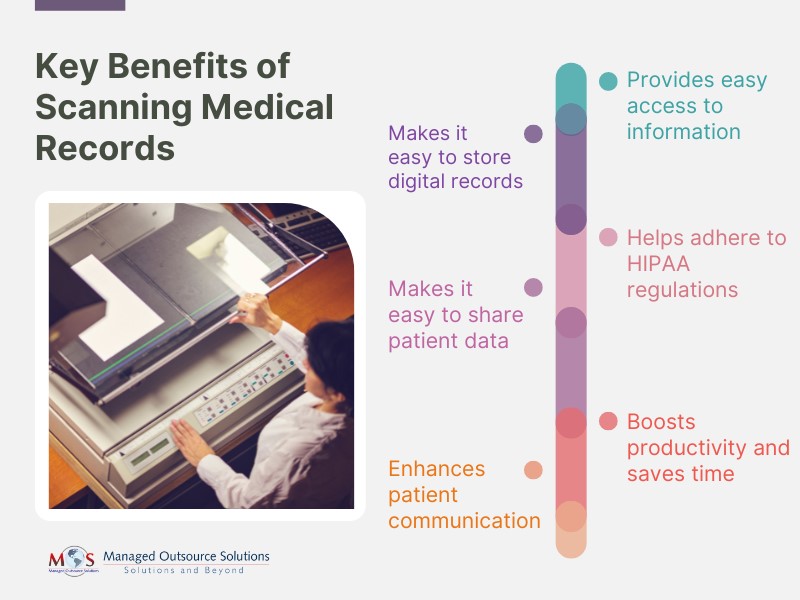Managing piles of paper documents or records generated in a medical practice or a healthcare clinic can be challenging. Many providers are now using professional-grade scanning technologies to digitize their medical records. Medical document scanning services provided by experienced professionals bring many benefits. Proper digitization of content helps improve operational efficiency and eliminate time-consuming, paper-related activities.
Key Benefits of Scanning Medical Records

Accurately scanned digital records help reduce medication errors, prevent unnecessary investigations, and improve communication and interaction among healthcare providers, patients, and others involved in their care.
Data quality, accuracy and completion are most important for the healthcare sector to deliver comprehensive medical care. All patient records must be scanned and stored properly (to make sure that no information is missed), sent to the required destinations in various formats, and made accessible at any time.
Before scanning medical documents, the first step is to organize the documents that have to be digitized and use an advanced scanner to get the task done. For digitizing large-volume medical records, it is best to outsource the task to a competent and established medical record scanning service provider. Outsourcing solutions also help the hospital system become more efficient with patient care and data management. Poor records management can lead to medication errors, missed diagnoses, treatment lapses and even potentially life-threatening events. Make sure that the outsourcing partner follows the necessary steps to ensure data quality standards.
Healthcare organizations need to be up-to-date with the principles and policies related to medical records management to maintain compliance and protect patients in the long run. Right from the moment a patient record gets created, providers have a legal and ethical obligation to protect patient information and manage medical records.




